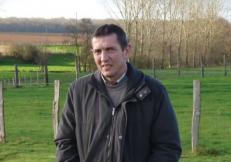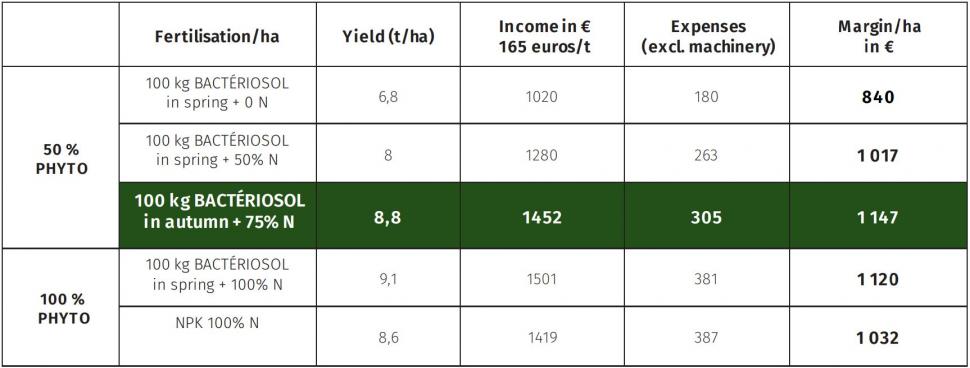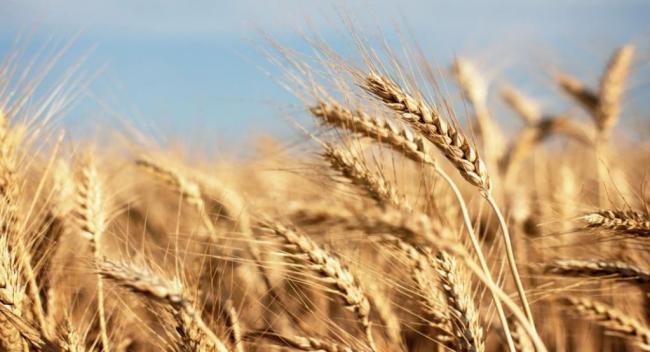
Didier Bouillon
BACTÉRIOSOL testing results on cereals after 4 years of use and without organic matter
Crop/Production
Didier Bouillon is a farmer specialized in Polyculture livestock farming in Vieuvicq, department of Eure-et-Loir. He has been using SOBAC solutions since 2008.
- Human resources : 2 Units of Human Worker + 2 employees 2/3 time.
- Useful agricultural area : 364 hectares 122 hectares of soft wheat; 15.5 hectares of rapeseed; 64 hectares of barley ; 13 hectares of corn ; 7 hectares of rye seed ; 17 hectares of garden peas ; 7 hectares of meadow ; 17 hectares of fallow land. Of which 30 hectares are owned, the rest are rented.
- Distribution of the area on 6 municipalities On a perimeter of 22 km Pumping irrigation from the river, where possible, over 150 hectares.
Product/Usage
- Bactériosol concentré (since 2008) / to maintain a high level of production & reduce nitrogen inputs and phyto treatments<
Testimonial

The 4th year nitrogen and phyto reduction test platform: wheat, harvest 2018
During 4 years a platform has been carried out at M. Bouillon’s farm to study the impact of the reduction of phytotreatments and nitrogen application on yields and gross margin. 5 modalities for fertilisation and 2 modalities for phyto treatments were set up (50 % and 100 % ) Results of the platform after 4 years, harvest 2018, wheat.
1- PHYTO TREATMENTS AND NITROGEN REDUCTION PLATFORM

After 4 years, with the same reduction on each strip of phyto treatments and nitrogen on a rotation Wheat – Rapeseed – Wheat -Wheat, the results show that Marcel MEZY Technologies make it possible to maintain a high level of production while reducing nitrogen inputs and phyto treatments by 50% and therefore improving the profitability of the farm : 1147 euros/ha or + 115 euros/ha compared to conventional fertilisation Which represents in total + 14 030 euros for the 122 ha of wheat
2- ECONOMICAL STUDY OF THE FARM BEFORE AND WITH SOBAC

For the purpose of this study, we analysed the average application of units of fertiliser on the farm over 2 periods of 3 years (BEFORE / SOBAC) :
- From 2006 to 2008 : conventional fertilisation => BEFORE
- From 2008 to 2016 : transition to SOBAC
- From 2017 to 2019 : 100% SOBAC on the farm => SOBAC


This technology allowed to save 57 € on inputs per hectare or € 19,600 on 345 ha. This without taking into account fuel cost that we would estimate around 15% or 5,000-6,000 € (traction + irrigation).
CONCLUSION
The scheme using 100 kg BACTÉRIOSOL Concentré + 100 % N + 100 % phytos gives the best yield, but the scheme with BACTÉRIOSOL concentrated + 75 % N + 50 % phytos has given the best margin. With BACTÉRIOSOL, we can therefore permanently reduce fertilizers and fungicides and i ncrease our gross margin.
These results are very promising for cereal producers who are looking for solutions to be more ecofriendly or even organic. These results prove that BACTÉRIOSOL allows a significant reduction of nitrogen inputs and use of phytosanitary chemicals while maintaining yields, thereby improving overall profitability of the farm.
Results
He uses BACTERIOSOL since 2017 on 100% of his farm to reduce phytotreatments and nitrogen application.
- High level of production
- Saving 57 € on inputs per hectare (€ 19,600 on 345 ha)
- Reducing nitrogen inputs and phyto treatments by 50%
- Reducing the use of fertilizers and fungicides
- Increasing gross margin.
- Improved soil fertility

